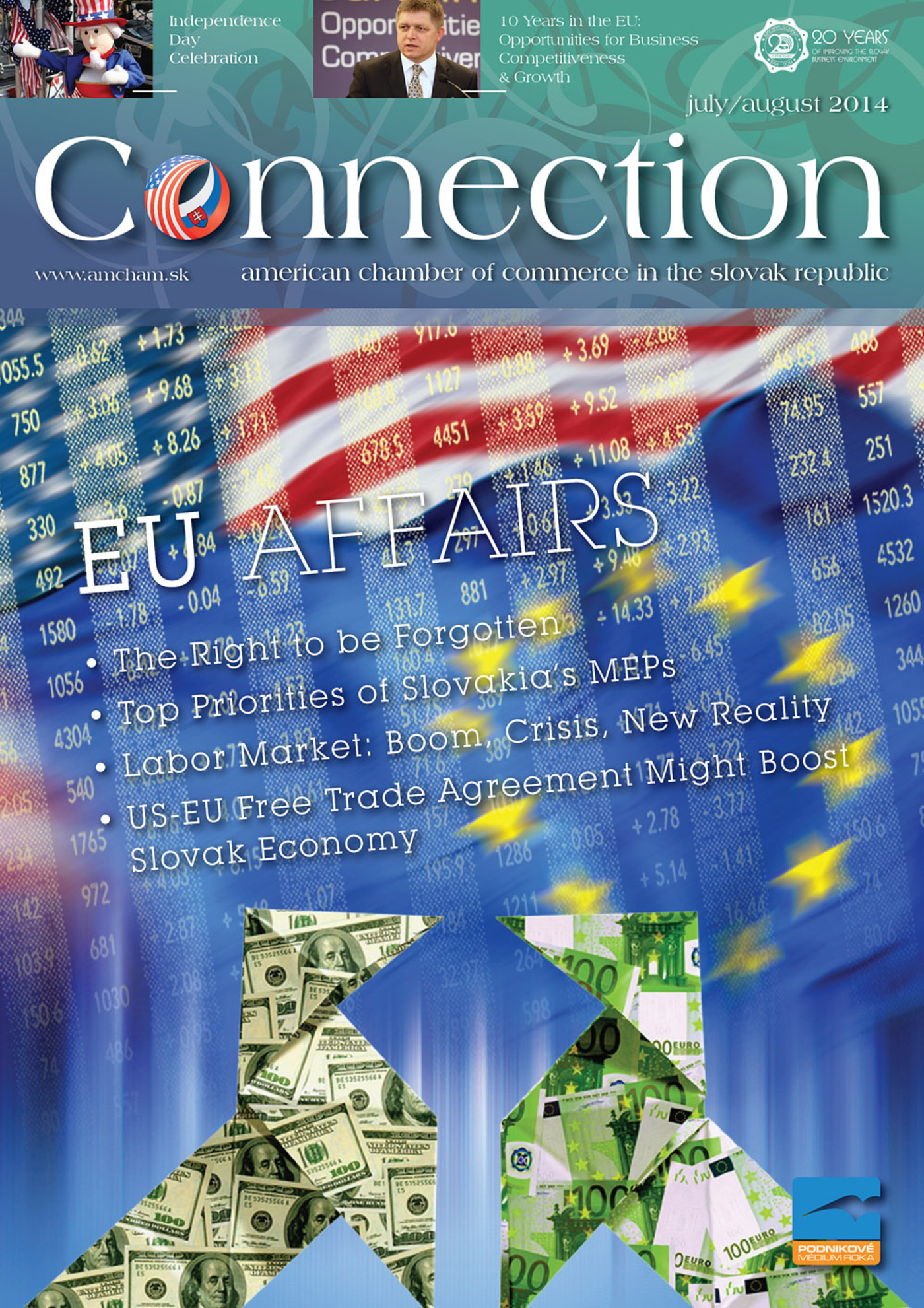Given the historical links and interconnectedness of the world’s two biggest economies – the European and the American – it is startling to find the number of diverse barriers and legislative impediments that complicate the mutual trade, making it impossible to use the potential advantages of a truly common market.
This has inspired the current initiative which seeks to achieve significant progress in liberalizing the foreign trade of the European Union (EU) and the United States of America (USA). The emerging treaty is referred to as the Transatlantic Trade and Investment Partnership (TTIP) – a free trade zone agreement between the EU and the USA.
Slovakia, with its profoundly export-driven economy, can be among the countries that profit most from TTIP. This is one of the reasons why Slovakia should not remain a passive bystander in negotiations over specific issues of the transatlantic free trade zone. In an effort to strengthen the voice of Slovakia’s businesses and the professional public in negotiations over the contents and final version of TTIP, the Business Alliance of Slovakia (BAS) in cooperation with the US Embassy in Bratislava, has implemented a special year-long project “TTIP – Transatlantic Trade and Investment Partnership: A Unique Opportunity for Businesses in Slovakia to Grow (?)“.
Several roundtable consultations with Slovak business leaders, government officials, NGOs, US experts and other stakeholders were organized during the project implementation. The main purpose was to examine and discuss potential challenges and opportunities associated with TTIP from Slovakia´s perspective. The debates focused on sectors and topics relevant to TTIP negotiations, such as Finance, Agriculture & Food, IT & E-Commerce, Energy & Shale Gas, Market Access, Intellectual Property, ISDS and Automotive.
The project also featured an extensive survey among businesses in Slovakia on expected impacts of TTIP on Slovakia’s economy and business environment. More than a half of the respondents assumed that the free trade zone between the EU and the USA would bring new business opportunities and help boost Slovakia’s economy. According to the entrepreneurs, the most pronounced contribution of TTIP would be a higher number of business partners, an intensification of foreign trade and a simpler transfer of know-how and technologies.
The dominant optimism of entrepreneurs towards a common EU and US market is reassured by reactions to risks associated with TTIP. The list of risks is shorter than the list of benefits; in comparative terms, the entrepreneurs perceive the different threats as less pronounced than the advantages. The most frequent concern is more intense competition on the marketplace, which, while beneficial for the economy as a whole, may at the same time reduce profits or even undermine the viability of some businesses. An efficient measure to compensate the risks of more intense competition, which the Slovak government should definitely not underestimate, is improving the business environment.
Entrepreneurs who participated in the survey expect that the existence of a transatlantic free trade zone and removal of trade and regulatory barriers will have a beneficial impact on their revenues (expecting an average 17% increase of revenues). Interestingly, 88.7% of the responding entrepreneurs are convinced that liberalization of trade will improve employment; the average rate of expected change in the number of employees was +7.8%.
The main outcome of the project is the comprehensive impact analysis that summarized concerns and ideas expressed during the project implementation and analyzed the potential direct/indirect impact of TTIP on the Slovak economy.
The analysis indicates a 2.57% increase in corporate revenues, 1.19% increase of employment rate (i.e. 27,652 new jobs), 3.10% growth of exports and 2.93% growth of imports. The expected growth of cross-border trade is 3.02%. Furthermore, the GDP is expected to grow at roughly 3.96% to 4.22%. Accordingly, TTIP’s contribution to Slovakia’s economy could amount to as much as 3.6 billion euros (1,743 euros per single household).
Slovakia’s potential to profit from the benefits brought by TTIP depends largely on the competitiveness of its economy. Slovakia had a positive experience when it entered the European Single Market in 2004. The range of customers that it’s now possible to serve, without the need to overcome national barriers, has been extended from 5.5 million to 500 million. There is also fiercer competition between Slovak and European producers, as the latter have gained barrier-free access to the markets of Central and Eastern Europe. Shortly after the country’s entry into the EU, Slovakia’s economy experienced one of its most stellar periods, with increasing economic growth that hit an all-time high of 10.4% in 2007. We should therefore learn from the past, and take full advantage of the emerging free trade deal – TTIP.
The impact analysis and latest news on TTIP can be found at www.ttip-slovakia.sk
Tomáš Bereta, Public Affairs Consultant, FIPRA Slovakia



Follow us